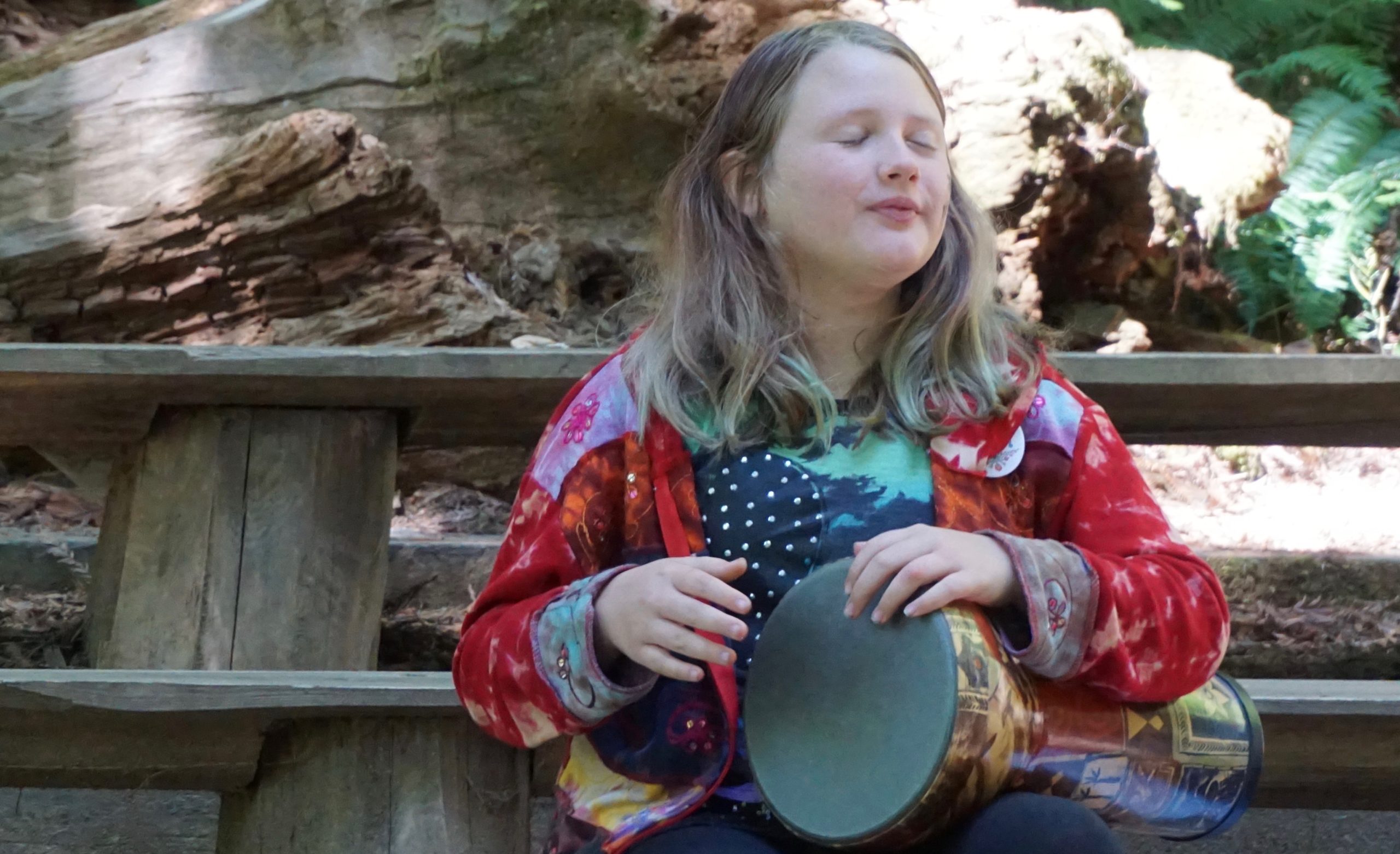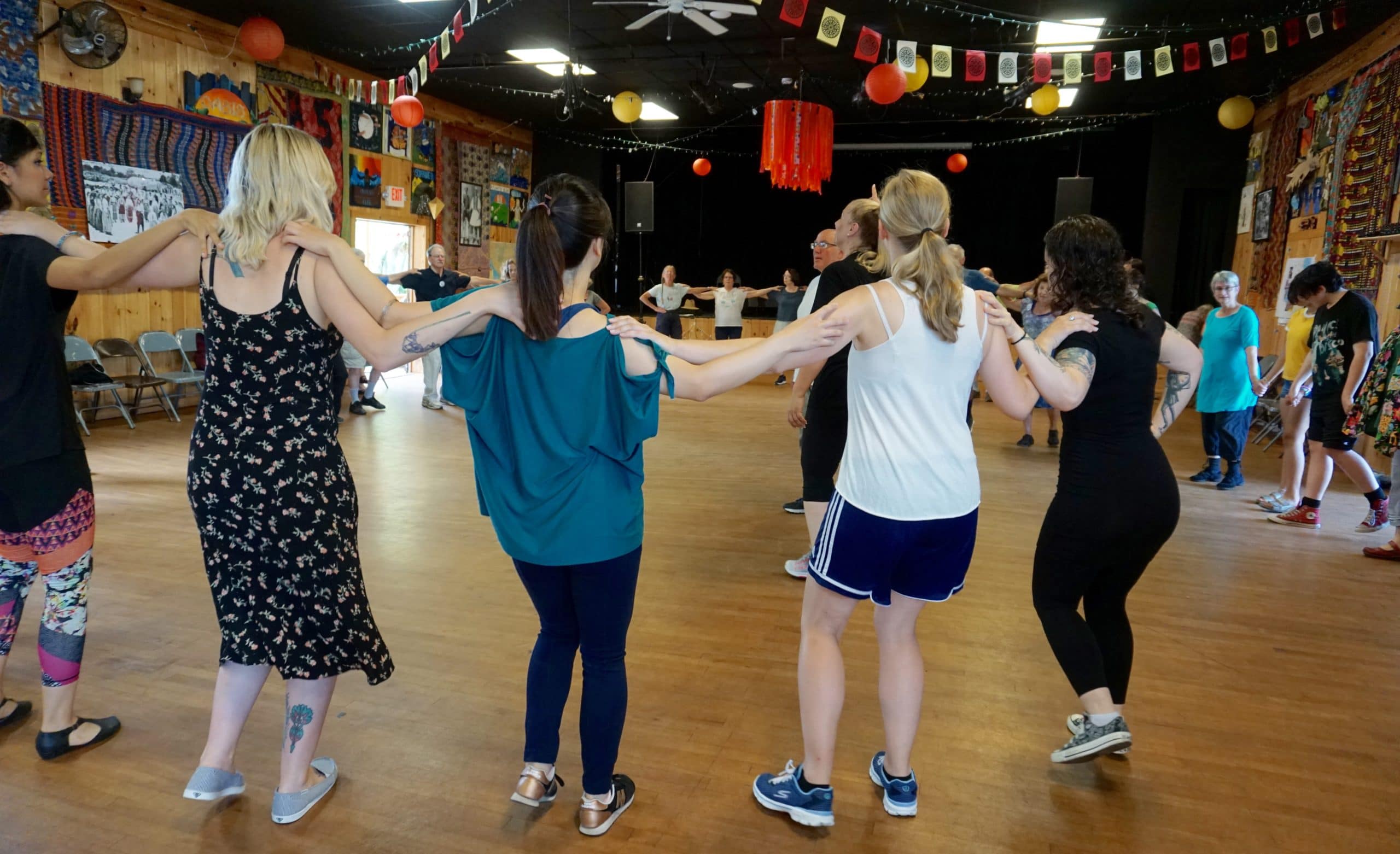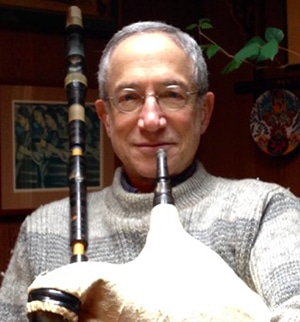
West Coast Balkan Music & Dance Workshop
Mendocino Woodlands, California
June 28 – July 5, 2025
Since 1977 the West Coast edition of the EEFC’s Balkan Music & Dance Workshop has been gathering amidst the towering redwoods of the Northern California coast. Each year we welcome new friends along with old, as musicians and dancers and those who love them come together with our extraordinary teaching staff for a memorable week. Our rustic setting makes for a true getaway. Our programming offers numerous opportunities to learn, and our welcoming and warm atmosphere creates a friendly setting for your week at camp.
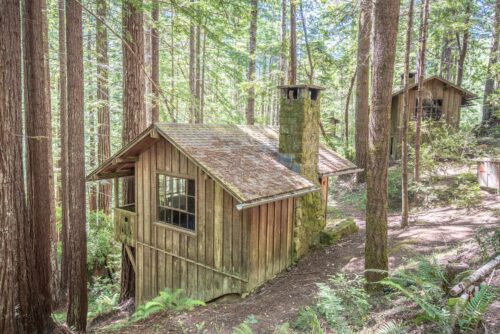
The Facility
The Mendocino Woodlands is located in a beautiful redwood forest near the Northern California coast, 175 miles north of San Francisco. A half an hour inland from the scenic coastal town of Mendocino, our camp has three clusters of rustic (no electricity), four-person enclosed cabins on somewhat hilly terrain with stone fireplaces and balconies, a spacious dance hall, and plenty of tenting sites. Each cluster has its own bathhouse with lights and hot showers. Between classes you can hike in the forest or take a dip in the swimming hole in the nearby river.
The Workshop
The Mendocino Workshop runs from Saturday evening to the next Saturday morning. Classes begin Sunday morning, and are held each day through Friday. Following a review session Friday morning, participants have the option to perform in a student concert. The week closes on Friday with a Balkan-style lamb roast and the last of the week’s great evening parties. We have part-time attendance options available.
The Program
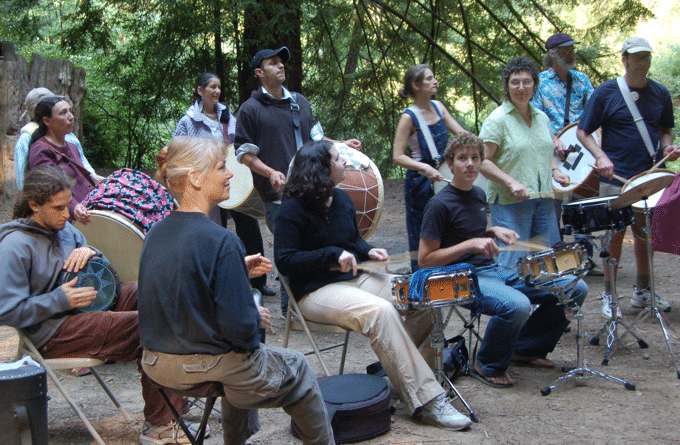
A broad array of instrumental, vocal, ensemble, and dance classes at all levels are offered across five daily 75-minute class slots. We provide an instrument-lending program to enable new students to get started on harder-to-find village instruments. In the early evenings the program includes folklore presentations and panel discussions, group sings with musical accompaniment, and our fun, community-building auction. Live-music dance parties featuring our world-class staff musicians will rock your socks in the dance hall, and the party continues late into the night in our more intimate cafe-bar, the kafana, featuring a variety of staff and camper musical sets, from the sublime to the floor-stomping. See a sample daily schedule.
Food
The workshop features three delicious meals a day and an evening snack, with selections to please both omnivore and vegetarian tastes.
Families
We welcome families! The Mendocino workshop features a youth band and kids’ dance and singing classes; and children are also welcome and encouraged to take adult classes, according to their capabilities. Find more info on Kids at Camp.
Work Exchanges
Mendocino camp runs smoothly thanks to a hard-working crew of work exchange campers, who receive a partial tuition waiver (or a full waiver in some cases) in exchange for their labor. More information on 2025 work exchange opportunities will be available in the spring. Read more at the red Work Exchange tab above on this page, and apply here. The deadline to apply is May 1st. We appreciate you!
Evening Parties
You may attend just the evening parties, which usually begin at 9 p.m. The cost is $50 per person. Admission includes the evening dance party and late-night Kafana activities until 2:30 a.m. (no overnight accommodations). Please register for evening parties with the EEFC Office before June 27. Tell us what night you plan to attend and the names of others in your party. We cannot accept drop-in partygoers. Registered partygoers may check in and pay at the Kafana when you arrive on site (no earlier than 7:30 p.m.). Click on the Evening Parties tab to see the schedule of evening parties, culture corners and group sings.
Cost, Registration, and Other Information
Registration for the 2025 Mendocino workshop is open. Click here for tuition information and to register. IMPORTANT: No registrations will be accepted within a week of the start of the workshop on June 28, 2025. Please make sure to get all your “paperwork” in by June 21, 2025. THANK YOU! Workshop updates are announced through our email Newsletter (sign-up if you haven’t already), the EEFC listserv discussion group, and on our Facebook page.
2025 Teachers
Staff and class description listings are subject to update and change.
Dance
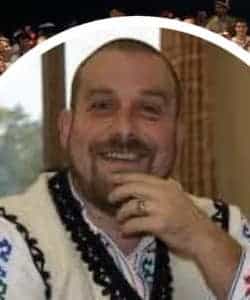
Konstantin Marinov
Bulgarian Dance
Konstantin "Kotse" Marinov is from Stara Zagora, Bulgaria. From the age of 5 he performed with the Children's and Youth Ensemble "Zagorche." Kotse was born into a dancing family: he and his...Read More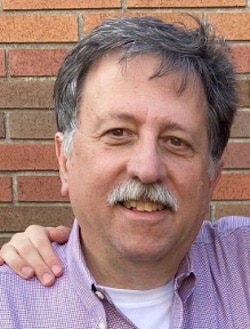
Steve Teodosiadis
Greek Dance
Steve Teodosiadis participated in church-related Greek dance programs as his life took him from Long Beach to Oakland and finally to Seattle where he helped form the St. Demetrios Greek Orthodox...Read More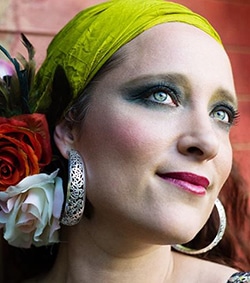
Jessaiah Zuré
Turkish Roman Dance
Jessaiah Zuré is a California native, the daughter of musicians. Raised primarily in the San Francisco Bay Area in a very creative and open environment, she was exposed to many styles of music...Read More
Instruments & Ensembles

Tano Brock
Brass Band; Brass Melody
Tano Brock, a native of San Francisco, California, was introduced to the world of music at an early age. Growing up, he attended various music camps and festivals throughout California with his...Read More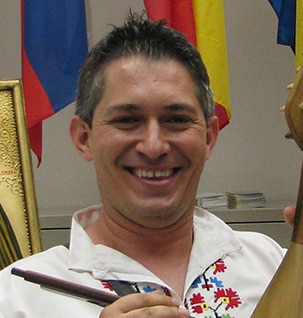
Angel Dobrev
Gadulka
Angel Dobrev was born in the town of Omurtag in Bulgaria. He plays the gadulka (Bulgarian: гъдулка), which is a traditional Bulgarian bowed stringed instrument. He expressed an interest in...Read More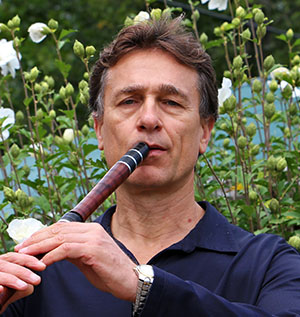
Valeri Georgiev
Bulgarian Kaval
Valeri Georgiev is from the Bulgarian Danube town of Ruse. He studied kaval in Kotel with Stoyan Chobanov and Georgi Penev, and graduated from the Plovdiv Academy of Arts with a BA degree in...Read More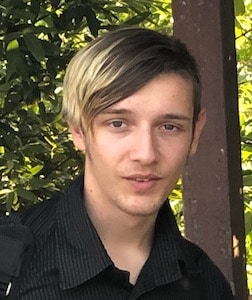
Bobby Govetas
Beginner Ensemble; Tapan/Daouli (Greek Zournadhes + Modern Brass Styles)
Bobby Govetas is an accomplished percussionist, performing on daouli and drum kit. He is equally at home playing the subtle rhythms of Macedonia and Thrace as he is rocking out with his friends....Read More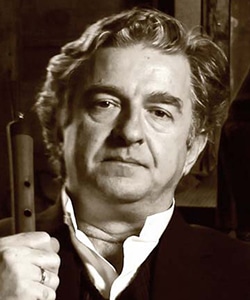
Christos Govetas
Greek Clarinet
Christos Govetas was born in the village of Proti, in the province of Serres in Greek Macedonia. After emigrating to Boston in 1978 he joined the Rebetiko band Taxími as a bouzouki and baglama...Read More
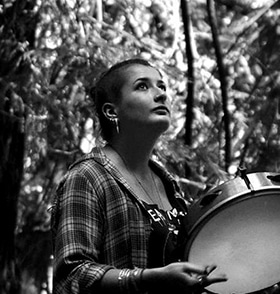
Eleni Govetas
Greek Ensemble
Eleni Govetas was born into the musical Govetas family, and has been immersed in the music from day one. She began performing with her family at the age of nine, and has continued to pursue...Read More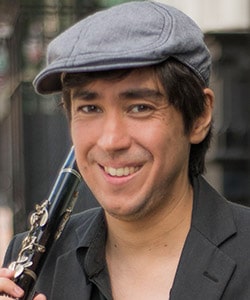
Greg Masaki Jenkins
Beginner Ensemble; Rebetika Ensemble
Greg Masaki Jenkins is a second-generation American Balkan folk dancer who grew up at the Balkan Music & Dance Workshops. He gigs regularly throughout the San Francisco Bay Area with the...Read More
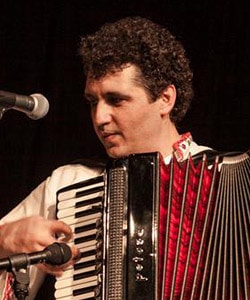
Kalin Kirilov
Accordion; Bitov/Bulgarian Village Ensemble
Kalin Kirilov, born in Vidin, NW Bulgaria, began singing and playing the accordion at the age of four. He studied tambura and music theory in Vidin and Pleven and graduated from the Academy of...Read More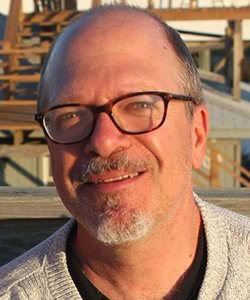
Jerry Kisslinger
Tapan/Daouli (Macedonian Village + Pontic Styles)
Jerry Kisslinger has played tapan/daouli for Balkan and folk-dance community events, concerts, and festivals throughout the United States for many decades and has taught regularly at EEFC camps...Read More
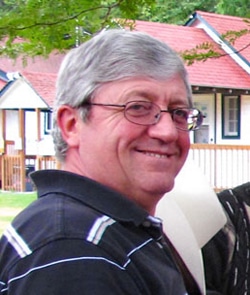
Stoyan Kostov
Bulgarian Tambura
Stoyan Kostov has been playing Bulgarian tambura for over 50 years. He graduated from the folk music school in Kotel and the Plovdiv Academy of Music and Dance. Stoyan performed with Ensemble...Read More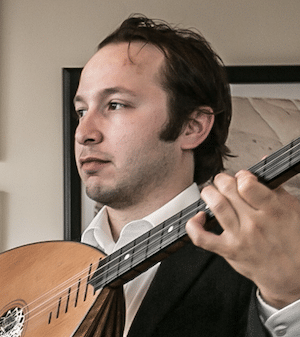
Nick Maroussis
Greek Strings; Rebetika Ensemble
Nick Maroussis is a musician based out of Seattle, Washington, where he grew up playing strings in various rock bands in the greater Seattle area. His involvement in the Greek community and...Read More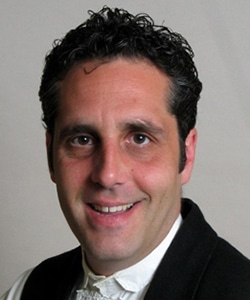
John Morovich
Tamburica Ensemble
John Morovich grew up in Seattle's sizable Croatian community. Since 1973, he has studied, taught, and performed traditional music and dance of Croatia and other parts of Southeastern...Read More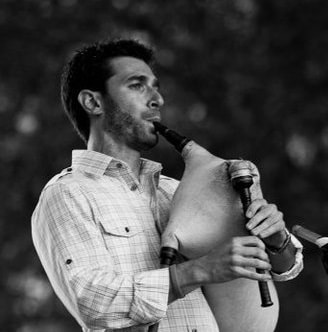
Varol Saatcıoğlu
Thracian Gajda
Varol Saatcıoğlu was born in Edirne, Turkey, into an extended family of musicians. At the age of five, he was accepted into the Istanbul University State Conservatory, where he studied music...Read More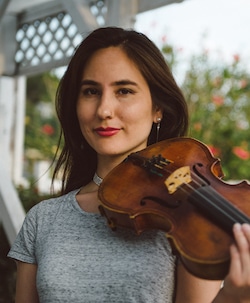
Aya Safiya
Greek Violin
Aya Safiya is a Bay Area-born violinist who specializes in traditional Greek music. She has studied Greek violin for over 25 years with various teachers including Nicos Chatzopoulos and Nikos...Read More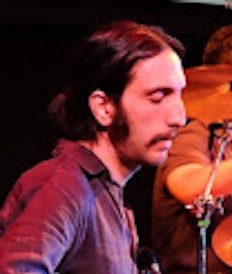
Ali Yağız Şen
Makam Theory
Ali Yağız Şen, whose stage name is Jarolim Gayri, hails from the vibrant musical landscape of Istanbul, Turkey, and is a multi-instrumentalis, pedagogue, and scholar deeply rooted in the rich...Read More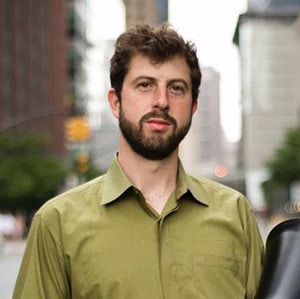
Sean Tergis
Doumbek
Drawing on a music base in folk music from the Middle East, Turkey, Greece and the Balkans, Sean Tergis brings a unique element to his drumming through many different influences. Since 2002, Sean...Read MoreSinging
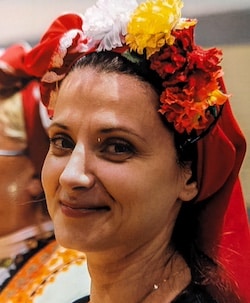
Tzvety Dosseva
Bulgarian Singing
Tzvety Dosseva is the daughter of well-known Bulgarian musicians Lyuben Dossev and Tanya Dosseva. Inheriting her parents' talent for music and performing, Tzvety experienced the stage for the...Read More
Christos Govetas
Greek Singing
Christos Govetas was born in the village of Proti, in the province of Serres in Greek Macedonia. After emigrating to Boston in 1978 he joined the Rebetiko band Taxími as a bouzouki and baglama...Read More
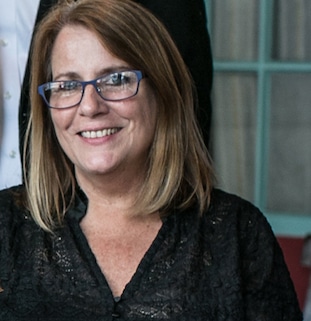
Ruth Hunter
Introduction to Balkan Singing
Ruth Hunter began her musical career singing and playing Bulgarian folk music, but immersed herself in Greek music and culture after marrying Christos Govetas in 1995. She sings and plays...Read More
John Morovich
Croatian Singing
John Morovich grew up in Seattle's sizable Croatian community. Since 1973, he has studied, taught, and performed traditional music and dance of Croatia and other parts of Southeastern...Read More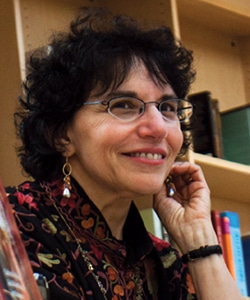
Carol Silverman
Romani Singing
Carol Silverman has been involved with Balkan and Romani music and culture for over thirty years as a researcher, teacher, performer and educational activist. An award-winning professor of...Read More
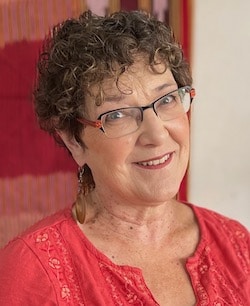
Michele Simon
Balkan Vocal Technique 101; Balkan Vocal Technique Master Class
Michele Simon has been involved with music all of her life, and with Balkan folk music for most of it, as a dancer, singer, drummer and teacher. She was raised surrounded by music of all kinds,...Read MoreCulture

Carol Silverman
Balkan Romani Music, Dance, and Culture
Carol Silverman has been involved with Balkan and Romani music and culture for over thirty years as a researcher, teacher, performer and educational activist. An award-winning professor of...Read More
For the Kids
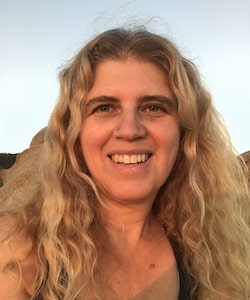
Darina Drapkin
Children's Activities
Darina Drapkin is a native Russian speaker, having immigrated to the U.S. over 40 years ago. Her enthusiasm, curiosity, and musical interests have led her into many genres and traditions of...Read More
Eleni Govetas
Youth Band
Eleni Govetas was born into the musical Govetas family, and has been immersed in the music from day one. She began performing with her family at the age of nine, and has continued to pursue...Read More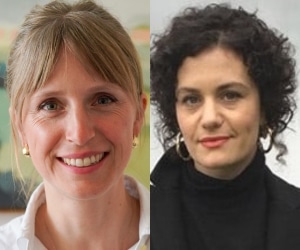
Hilary Musaji & Eva Salina
Balkan Group Singing for Youth
Hilary Musaji and Eva Salina are extremely excited to co-lead Balkan Group Singing for youth campers! We will travel around the Balkans through songs, exploring the sounds and textures of language...Read More
All About Camp Work Exchanges
The Mendocino Workshop runs smoothly thanks to a hard-working crew of work exchange campers, who receive a partial tuition waiver (and a few full waivers) in exchange for their work.
Work exchange folks have a job at camp, like washing dishes or cleaning bathrooms. In exchange for their hard work, they pay reduced tuition (in most cases 50%) to come to camp. Some jobs require special skills, experience, or knowledge of the workshop environment, others requiring lifting or standing, etc. Others are great for first-timers or require no special skills.
The Site Manager fields work exchange requests and helps manage the work exchange crews during camp, along with crew leaders who manage the larger crews.
What’s the difference between a work exchange and a workshop scholarship?
A work exchange job means that you get assigned some work/duties at camp and in exchange some or all of your tuition costs are waived. A scholarship is different—with a camp scholarship, some or all of your tuition costs are paid by generous donors and you do not have any work duties at camp. If you have applied for and end up receiving a scholarship, you may withdraw your work exchange request. Please note that the Mendocino scholarship application period has already ended, and that scholarship decisions will be announced in April.
About the work and jobs:
Workers are required to arrive at camp by 4:00 p.m. the first day of camp and stay until 11:00 a.m. the last day. Note that we cannot accommodate part-time campers for work exchange. Work exchangers are also expected to be timely and responsible throughout the week (that means arriving to your shifts on time, getting the work done, etc.)
At Mendocino, the majority of work exchange positions are on the Dish Crew. Folks on the Dish Crew work two 90-minute shifts per day. There’s a swap meeting the first night to trade around shifts and optimize your schedule, but it’s still possible you may have to miss a class or two. Lots of the people on Dish Crew enjoy being part of a team, making friends, and having some additional structured time. (And everybody loves using the sink sprayer!) This is a great crew for first-timers, as no prior skills or knowledge of camp are required, and making new friends is quick and easy.
Other crews include Bath Crew (cleaning bathrooms/washhouses, taking out trash, some auxiliary setup of chairs/benches); Donation Store Crew (setting up, running, and closing down the Donation Store. Often includes pre-camp organizing get togethers in the Arcata area for those available); Kafana Crew (setting up, running, and closing down the Kafana. Includes lots of late-night shifts.) Other specialty jobs include the Gofer (town runs everyday for supplies), Wellness Advisor, Stage Manager and Sound Techs in the Dance Hall and Kafana, Housing, Rides, Bedding, and other admin help. Many of these positions require special prior experience at camp or in a similar role.
How to apply:
Requests for work exchange will be collected on a rolling basis through May 1st. We encourage you to make your work exchange request early to ensure we have a spot for you. Jobs may run out, and date of request is strongly considered when assigning jobs to applicants. Please note that we can only accommodate full-week campers for work exchange, and that application for a work exchange position does not guarantee a work exchange position. Applicants who are offered work exchange jobs are expected to accept the commitment and register for camp within a timely manner. We look forward to having you on the team! Apply here.
Mendocino Woodlands Camp 1 Map
Use this map to help you decide which cabin or cabin area to request on your registration form. Please note that the central section (Cabins 17-31) is generally reserved for staff.
Click here to download a full-size PDF of this map.
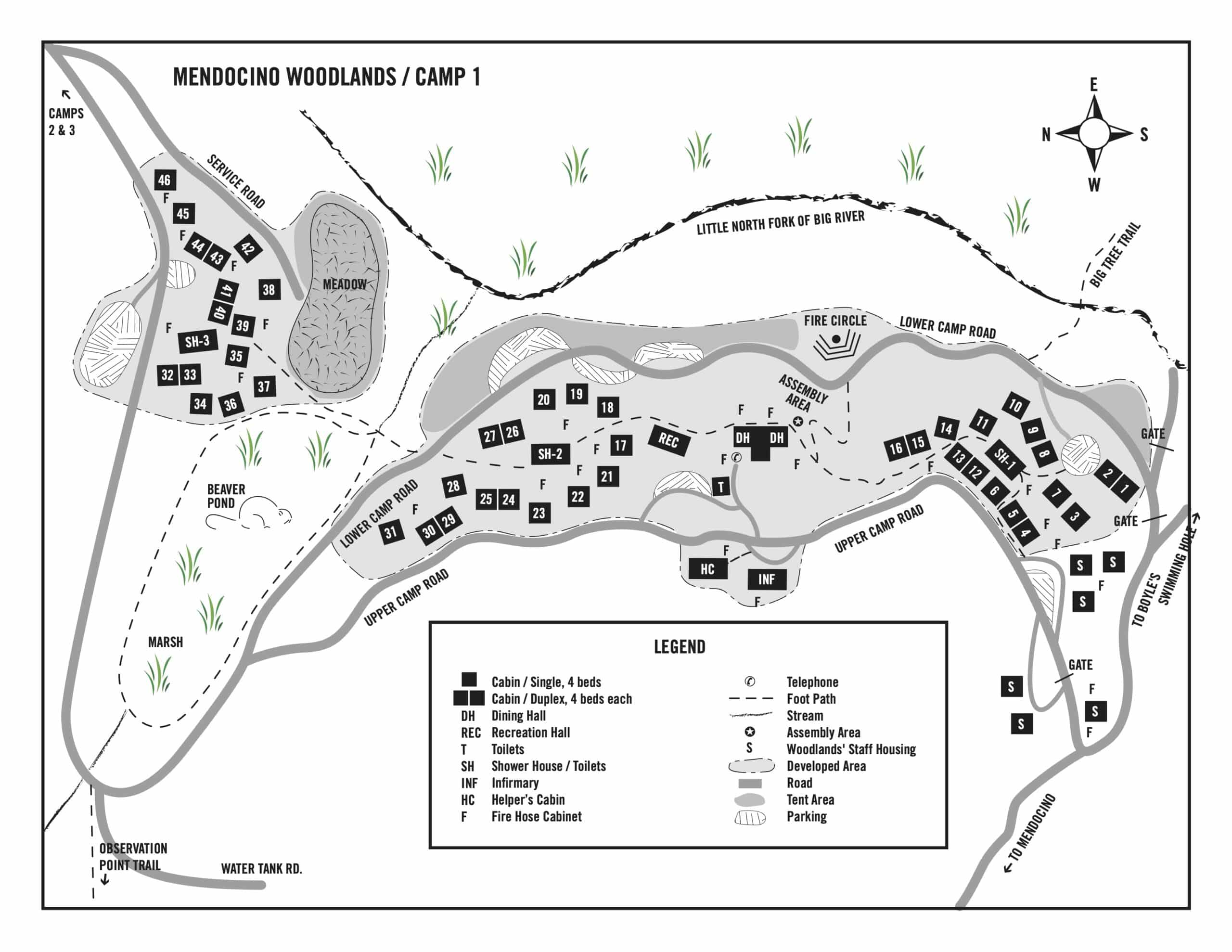
Getting to Mendocino
Mendocino Woodlands Camp One is in Jackson State Forest about 175 miles north of San Francisco, roughly 12 miles inland from the coastal town of Mendocino.
From the south, take Hwy 101 North to Cloverdale. Highway 101 bypasses Cloverdale, so take the Hwy 128 Fort Bragg/Mendocino exit (after a couple of Cloverdale exits). Some 60 miles later (twisty road, but gorgeous vineyard, redwood, and coastal scenery), take Hwy 1 North to Mendocino.
From the north (Oregon), take I-5 South to Grants Pass, then Hwy 199 to Crescent City. From there, take Hwy 101 South to Leggett. From there take Hwy 1 South (insanely twisty road to the coast, with the reward of breathtaking ocean views) to Mendocino.
From Mendocino, go east on Little Lake Road (Co. Rd. 408) from Hwy 1
(at stoplight) for 5.6 miles, then turn right on Co. Rd. 700 (winding dirt road). Drive for 4 miles to Camp One. Please drive slowly and carefully on this dusty road!
If you’ve never been to the Woodlands, plan to arrive before dark. Registration will be located just outside the dining hall.
Dine & Dance—Bed & Breakfast
Come for early evening activities, the dance party and the late night kafana. Then spend the night and enjoy breakfast before you hit the road!
Here’s how it works:
- 6:00 p.m.: Arrive at our lovely redwoods site (see Directions tab above). Check in at the Kafana and set up your bunk. Join us for a delicious dinner, starting at 6:30.
- Then take in a folklore presentation, singalong, or join in our auction. Dancing to live music begins in the main hall generally around 9:00.
- Our Kafana in the woods is a bar and a club, and a place where much music and merriment happens into the wee hours. Stay as long as you like!
- Sleep in a bunk with the bedding you brought from home.
- Roll out of bed, have breakfast by 9:30 a.m., and hit the trail by 10.
All this can be yours for $150. A cheap hotel in Ft. Bragg (forget the town of Mendocino), easily runs twice as much and provides no options for gajda, ouzo, čočeks, or çiftetelli!
HOW TO REGISTER
Use our online form to register for the Bed & Breakfast option. See the red “Register Now” button above. Note that you must follow the same procedures, timelines, and protocols as all other camp registrants.
Evening Parties
Live in the area? Join us for a fabulous evening of live music and dancing.
The $50 admission includes the evening dance party, a delicious complimentary evening snack, as well as late-night kafana activities until 2:30 a.m. No overnight accommodations are available for partygoers; please make sure you make provisions for getting home safely after the party (or consider registering for our B&B option above!).
Arrive anytime after 8 p.m. and pay your fee at the Kafana. The dance party generally starts at 9 p.m. Please make your reservations by email two days before the first day of camp. It is also possible to attend the Friday Lamb Roast. The cost for this event is $70, and it includes dinner and the evening party (no overnight accommodations).
HOW TO REGISTER
To register for an evening party, call us at 510-219-5462, OR email the EEFC Office at least two days before the beginning of camp (we do not have telephone reception in the Woodlands).
Tell us your name(s) and which night(s) you will be attending. Please make sure your reservation has been confirmed before heading to the Woodlands.
Payment. Please be prepared to pay your full fee at the Kafana when you arrive using cash, credit card, or check.
Evening Schedule 2025
Schedule is subject to change.
Culture Corners and Group Sings begin at 7:45 p.m. Dance parties, unless noted, begin at 9:00 p.m.
Saturday
Dance (10:00-)
Brass—Fanfare Zambaleta
Bulgarian—Bulgarian Staff Musicians
Sunday
Group Sing (7:45-8:45): “Southern” with Michele Simon
Dance (9:00- )
Tamburica—John Morovich
Greek—Drómeno
Monday
Group Sing: “Northern” with John Morovich
Dance
Grevena + Pontic—Special Guest Ari Langer
Bulgarian—Bulgarian Staff Musicians
Tuesday
Auction Night (dance party begins around 10:00 p.m.)
Dance
Zournadhes/Daouli—Govetas Family
Romani—Carol Silverman & Kalin Kirilov
Wednesday
Group Sing: Ipirot songs with Ruth Hunter
Dance
Bulgarian—Bulgarian Staff Musicians
Macedonian Village—Michele Simon, Mark Levy & Jerry Kisslinger
Thursday
Culture Corner: A Musical Family: an audiovisual presentation by Ruth Hunter, Christos, Eleni & Bobby Govetas
Dance
Greek Island—Aya Safiya
Rhodope Sing-Along—Mark Levy & Gajda Mafia
Turkish—Tano Brock
Friday
Student Ensembles play for your dancing pleasure (dance party begins at 8:00 p.m.)
Daily Schedule 2025
Schedule is subject to change.
CLASS LEVELS
- Beginner (B): You are new to this instrument/singing style.
- Intermediate (I): You have some proficiency: can match pitches, accurately replicate phrases heard by ear, and play at speed.
- Advanced (A): You have technical mastery: you are focused on stylistic details and self-expression.
If you are interested in a class that is not at your level, you can always audit! Please remember that the pace of instruction will not be geared to you, and hold your questions till the end of each session. If a class does not have a designated level, all are welcome!
CLASS SCHEDULE 2025
SLOT 1 (9:30-10:45)
Dance: Greek—Steve Teodosiadis
Sing: Vocal Technique Intro—Michele Simon
Instrumental:
- Accordion—Kalin Kirilov
- Bulgarian Kaval A—Valeri Georgiev
- Bulgarian Tambura B—Stoyan Kostov
- Gadulka B—Angel Dobrev
Kids: Children’s Activities—Darina Drapkin
SLOT 2 (11:00-12:15)
Dance: Bulgarian—Kotse Marinov
Sing:
- Greek—Christos Govetas
- Bulgarian A—Tzvety Dosseva
Instrumental:
- Tapan B/I (Macedonian Village + Pontic)—Jerry Kisslingeri
- Doumbek A—Sean Tergis
- Makam Theory—Ali Yağız Şen
Ensemble:
- Bitov (Bulgarian Village)—Kalin Kirilov
- Greek—Eleni Govetas
Kids: Children’s Singing—Hilary Musaji & Eva Salina
SLOT 3 (2:00-3:15):
Dance: Bulgarian—Kotse Marinov
Sing: Croatian/Klapa—John Morovich
Instrumental:
- Tapan/Daouli I/A (Zournadhes + Modern Brass Band)—Bobby Govetas
- Thracian Gajda B—Varol Saatcıoğlu
- Brass Melody—Tano Brock
- Bulgarian Tambura A—Stoyan Kostov
Ensemble: Rebetika—Greg Jenkins & Nick Maroussis
Culture: Balkan Romani Music, Dance, and Culture—Carol Silverman
SLOT 4 (3:30-4:45):
Dance: Turkish Roman—Jessaiah Zuré
Sing:
- Balkan Survey—Ruth Hunter
- Vocal Technique Master Class—Michele Simon
Instrumental:
- Gadulka A—Angel Dobrev
- Bulgarian Kaval B—Valeri Georgiev
- Greek Clarinet—Christos Govetas
Ensemble:
- Beginner Ensemble—Greg Jenkins & Bobby Govetas
- Macedonian Village Ensemble—Mark Levy
Kids: Youth Band—Eleni Govetas
SLOT 5 (5:00-6:15):
Dance: Greek—Steve Teodosiadis
Sing:
- Bulgarian B—Tzvety Dosseva
- Romani I/A—Carol Silverman
Instrumental:
- Thracian Gajda A—Varol Saatcıoğlu
- Greek Violin—Aya Safiya
- Doumbek B—Sean Tergis
- Greek Strings—Nick Maroussis
Ensemble:
- Brass Band—Tano Brock
- Tamburica—John Morovich
Camper Information
Registered campers, click here to access information about camp life, accommodations, what to bring, and everything else you need to know as you prepare for the Mendocino workshop.

